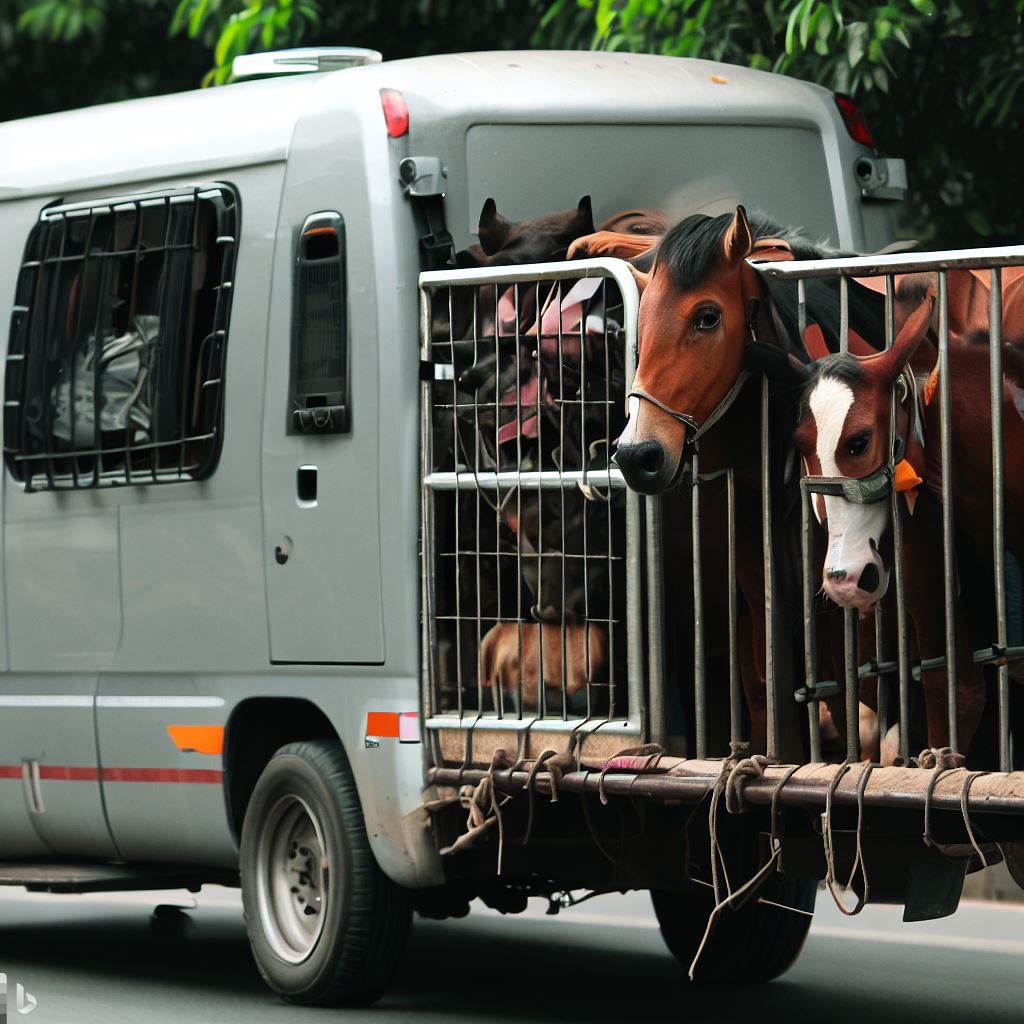ERP for Live Animal Transportation: Ensuring Safe & Quick Logistic
Streamline Live Animal Transportation with ERP Solutions. Discover how Enterprise Resource Planning (ERP) addresses the challenges faced by animal transport businesses, ensuring compliance, safety, and efficient logistics for live animals. Elevate your operations with ERP integration.
The live animal transportation business faces numerous pain points and bottlenecks due to the complexities and unique considerations involved in transporting live animals. However, implementing an Enterprise Resource Planning (ERP) system can offer effective solutions to address many of these challenges.
Benefits of ERP Implementation for Live Animal Transportation
Animal Welfare Regulations:
ERP’s compliance features ensure adherence to strict animal welfare regulations during transportation.
Health and Quarantine Requirements:
ERP’s integrated modules manage health and quarantine protocols for live animal transport.
Temperature Control:
ERP’s temperature monitoring and control features ensure appropriate conditions for different animal species.
Space and Ventilation:
ERP’s inventory management optimizes cargo space and ventilation for animal comfort.
Animal Behavior:
ERP’s specialized handling instructions consider diverse animal behaviors and temperaments.
Long Transport Durations:
ERP’s route optimization minimizes transport duration, reducing stress on animals.
International Transport:
ERP’s customs and import/export capabilities streamline cross-border transportation procedures.
Packaging and Crating:
ERP’s packaging management module ensures safe and secure transportation for live animals.
Specialized Equipment:
ERP’s asset management tracks and maintains specialized equipment for animal handling.
Risk of Injuries:
ERP’s safety protocols and real-time monitoring mitigate injury risks to animals and handlers.
Animal Emergencies:
ERP’s incident management handles medical emergencies with swift response.
Transportation Costs:
ERP’s cost analysis tools optimize transportation expenses for live animal logistics.
See How My Company Can Massively Automate Your Company Departments
Custom CRM Development – For Organizations to manage its Customer Interactions in addition to Sales, Marketing, Billing, Products, Services, Contacts, Customer Support, among other things.
Custom ERP Development – For Manufacturers to handle BOM, Quotation, Order, RFQ, PO, SOA, Manufacturing, Trading, Inventory, Quality Control, Logistics, Shipments, and so on.

Permits and Licenses:
ERP’s compliance tracking manages permits and licenses required for transporting specific animal species.
Delicate Animal Handling:
ERP’s handling guidelines consider the delicate nature of certain animals.
Weather Conditions:
ERP’s weather integration allows for real-time adaptation to weather conditions during transport.
Limited Flight Availability:
ERP’s logistics planning considers flight availability for animal transportation.
Communication with Authorities:
ERP’s communication features facilitate efficient interaction with relevant authorities.
Cargo Space Availability:
ERP’s resource planning ensures sufficient cargo space for live animal transportation.
Restricted Animal Species:
ERP’s compliance checks handle restrictions for transporting certain animal species.
Animal Health Documentation:
ERP’s document management system maintains accurate health records for each animal.
Animal Stress Management:
ERP’s transport planning minimizes stress on animals during transit.
Customized Transport Solutions:
ERP’s configurability provides tailored transport solutions for different animal types.
Contingency Planning:
ERP’s risk management module develops contingency plans for unexpected situations.
Time-Sensitive Deliveries:
ERP’s scheduling and dispatching prioritize time-sensitive live animal deliveries.
Handling Local Regulations:
ERP’s compliance tracking addresses diverse local regulations in different regions.
Insufficient Infrastructure:
ERP’s resource management identifies and addresses infrastructure limitations.
Risk of Zoonotic Diseases:
ERP’s tracking system ensures animals meet health requirements to prevent zoonotic diseases.
Animal Accommodation:
ERP’s accommodation planning considers specific requirements for each animal species.
Transit Delays:
ERP’s real-time tracking minimizes transit delays, safeguarding animal health.
Ethical Considerations:
ERP’s transparency and reporting features uphold ethical considerations for animal welfare.
Implementing an ERP system tailored to live animal transportation ensures streamlined operations, adherence to regulations, and enhanced animal welfare throughout the logistics process.
